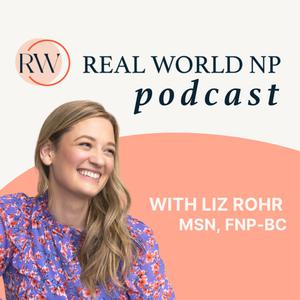
Real World NP
Liz Rohr
- 14 minutes 38 secondsNavigating Confrontation at Work as an NP
This episode focuses on leadership and role transition questions, specifically addressing a scenario where a new nurse practitioner is struggling with confrontational conversations with nursing staff. The host provides advice on how to navigate these situations using a framework called nonviolent communication. The framework involves expressing observations, feelings, needs, and requests in a clear and non-confrontational manner. The host also emphasizes the importance of building rapport and facilitating open communication within the team. Additional resources and episodes on leadership are recommended.
Key Takeaways:
-Leadership is a challenging skill to navigate, especially in the healthcare field where there is often a lack of training.
-Using the nonviolent communication framework can help facilitate difficult conversations by expressing observations, feelings, needs, and requests.
-Building rapport and open communication within the team is crucial for effective collaboration and patient care.
-Seeking support and additional resources on leadership can further enhance leadership skills and strategies.
For a full transcript and conversation chapters, visit the blog www.realworldnp.com/blog/confrontation
© 2024 Real World NP. For educational and informational purposes only, see https://www.realworldnp.com/disclaimer for full details.
Hosted on Acast. See acast.com/privacy for more information.
28 November 2024, 4:00 pm - 57 minutes 29 secondsPath to Overcoming Disillusionment in Healthcare with Rebecca Arnold
Rebecca Arnold, a holistic leadership coach, discusses the challenges of disillusionment and burnout in mission-driven professions like nursing and medicine. She emphasizes the importance of addressing emotions and processing them in a safe and titrated manner. Rebecca highlights the concept of the window of tolerance and suggests practices like meditation and mindfulness to expand it. She also emphasizes the value of emotions as sources of information and intuition. The path from disillusionment to fulfillment involves sitting with emotions, seeking support from professionals, and making small changes within the system. In this conversation, Rebecca and Liz discuss the path to overcoming disillusionment in the medical field. They explore the importance of addressing emotions, internal mechanisms, and finding opportunities for wins. They also discuss the role of grief and the need for self-compassion. Rebecca shares examples of clients who have transformed their experiences and found fulfillment in their work. They also discuss Rebecca's book, 'The Rooted Renegade,' which offers practical tools and strategies for navigating disillusionment and finding alignment in life and work.
Takeaways
- Addressing and processing emotions is crucial in combating disillusionment and burnout.
- Expanding the window of tolerance through practices like meditation and mindfulness can help handle emotions.
- Emotions provide valuable information and intuition that should not be ignored.
- Seeking support from professionals is important, especially when dealing with trauma or intense emotions.
- Making small changes within the system can contribute to a sense of fulfillment and well-being. Addressing emotions and internal mechanisms is crucial in overcoming disillusionment in the medical field.
- Finding opportunities for wins and recognizing moments of success can help combat feelings of disillusionment.
- Grief is a common experience in the medical field, and it's important to acknowledge and process it.
- Self-compassion and self-care are essential in navigating disillusionment and finding fulfillment.
- Rebecca's book, 'The Rooted Renegade,' offers practical tools and strategies for overcoming disillusionment and finding alignment in life and work.
For a full transcript and conversation chapters, visit the blog www.realworldnp.com/blog/burnout-in-nursing.
______________________________
© 2024 Real World NP. For educational and informational purposes only, see https://www.realworldnp.com/disclaimer for full details.
Hosted on Acast. See acast.com/privacy for more information.
14 November 2024, 4:00 pm - 53 minutes 21 secondsHow to Negotiate a Raise for Nurse Practitioners with Amanda Guarniere
In this conversation, Liz Rohr and Amanda Guarniere discuss negotiating a raise as a nurse practitioner. They emphasize the importance of collecting data about your job performance and your value to the organization. They also highlight the need to consider the employer's perspective and understand what matters to them. The conversation covers productivity metrics, RVUs (Relative Value Units), and the importance of building a case for a raise. They also discuss the different factors to consider in a compensation package and how to approach the conversation with your employer. In this conversation, Liz Rohr and Amanda Guarniere discuss negotiation strategies for healthcare professionals seeking salary increases. They emphasize the importance of preparation, including researching market rates and determining one's value. They also discuss the dynamics of negotiation and the need to disarm the other person and maintain a positive, collegial tone. They provide tips for requesting a meeting, presenting a case, and handling non-committal answers. They also address the challenges of negotiating within a group or tier system and offer advice for advocating for oneself while maintaining a collaborative approach. They discuss the importance of follow-up and provide strategies for handling requests for additional data or delaying decisions. They also mention the NP Salary Report, a resource for healthcare professionals to anonymously submit and access salary data.
Takeaways
- Collect data about your job performance and the value you bring to the organization when asking for a raise.
- Consider the employer's perspective and understand what matters to them.
- Build a case for a raise by highlighting your productivity metrics, such as patient volume and revenue generated.
- Take into account the different factors in a compensation package, including salary, bonuses, benefits, and work schedule.
- Approach the conversation with a partnership mindset, focusing on achieving mutual goals. Research market rates and determine your value before negotiating a salary increase.
- Disarm the other person and maintain a positive, collegial tone during the negotiation.
- Request a meeting without disclosing the purpose, and present your case in a positive and data-driven manner.
- Be prepared for non-committal answers and follow up to close the loop.
- Advocate for yourself within a group or tier system by discussing the issue individually with the lead NP and going through the proper chain of command.
- Be open to alternative forms of compensation or recognition if a salary increase is not immediately possible.
- Use the NP Salary Report to access salary data and support your negotiation efforts.
For a full transcript and conversation chapters, visit the blog www.realworldnp.com/blog/how-to-negotiate-a-raise/.
______________________________
© 2024 Real World NP. For educational and informational purposes only, see https://www.realworldnp.com/disclaimer for full details.
Hosted on Acast. See acast.com/privacy for more information.
24 October 2024, 3:00 pm - 44 minutes 37 secondsUnexpected Mentorship Questions from New NPs - Interview with Kara Pesola, NP
In this conversation, Liz Rohr and Kara Pesola discuss the challenges and common experiences of new nurse practitioners (NPs). They highlight the importance of support and mentorship for new grads and address the imposter syndrome many NPs experience. They also discuss the common questions and concerns that new NPs have, such as managing complex conditions and navigating controlled substances. The conversation emphasizes the need for new NPs to trust their judgment, seek guidance when needed, and prioritize patient safety. In this conversation, Liz Rohr and Kara Pesola discuss the challenges and considerations in primary care practice. They touch on topics such as bias in medication management, the importance of safety assessments, and the need for patient-centered care. They also highlight the significance of long-term patient-provider relationships and the stages of change in healthcare decision-making. The conversation emphasizes the importance of meeting patients where they are and supporting their well-being.
Takeaways
- New nurse practitioners often experience imposter syndrome and may feel unprepared for the challenges of practice.
- Support and mentorship are crucial for new grads to navigate the transition to practice.
- Common questions and concerns for new NPs include managing complex conditions and navigating controlled substances.
- It is crucial for new NPs to trust their judgment, seek guidance when needed, and prioritize patient safety. Bias exists in medication management, and it is essential to address it in primary care practice.
- Safety assessments and goals of care conversations are crucial in patient-centered care.
- Long-term patient-provider relationships are valuable in managing chronic conditions.
- Understanding the stages of change can help guide healthcare decision-making.
- Meeting patients where they are and supporting their well-being is essential in primary care.
For a full transcript and conversation chapters, visit the blog www.realworldnp.com/blog/mentorship-questions
______________________________
© 2024 Real World NP. For educational and informational purposes only, see https://www.realworldnp.com/disclaimer for full details.
Hosted on Acast. See acast.com/privacy for more information.
10 October 2024, 3:00 pm - 18 minutes 17 secondsAdvice for Creating New NP Mentorship Programs
In this episode, I share my experiences and insights on starting a mentorship program, drawing from my own journey as a nurse practitioner and founder of Real World NP. I discussed the context of mentorship, the structure of one-on-one and group mentorship programs, the frequency and duration of mentorship meetings, and the topics to cover. Additionally, I covered the importance of creating a safe psychological space for mentees and the value of peer support in mentorship programs.
Takeaways
- The importance of creating a safe psychological space for mentees in a mentorship program
- The value of peer support and not feeling alone in a mentorship program
- Considerations for mentorship frequency, duration, and topics to cover in a mentorship program
For a full transcript and conversation chapters, visit the blog www.realworldnp.com/blog/mentorship-programs
______________________________
© 2024 Real World NP. For educational and informational purposes only, see https://www.realworldnp.com/disclaimer for full details.
Hosted on Acast. See acast.com/privacy for more information.
26 September 2024, 3:00 pm - 40 minutes 47 secondsAdvice for New Grads Interested in Urgent Care with Michelle Lew, NP
Michelle, a board-certified family nurse practitioner with experience in urgent care, shares her journey and insights into the field. She discusses the differences between urgent care and primary care, the challenges of not having access to medical records in urgent care, and the importance of collaboration between the two. Michelle also provides advice for those interested in working in urgent care and recommends resources for further learning.
Takeaways
- Urgent care is a bridge between primary care and the emergency room, providing care for acute conditions that can't wait for a primary care appointment.
- There is a disconnect between urgent care and primary care, with urgent care often lacking access to patients' medical records.
- It is important for urgent care and primary care to have a better partnership to ensure continuity of care for patients.
- New grads interested in urgent care should work with another provider and have a ramp-up program to ensure success.
- Being able to determine if a patient is sick or stable is a crucial skill in urgent care.
- Resources for learning about urgent care include Hippo Education's Urgent Care Bootcamp, EKG resources by Jen at Cardiology Made Easy, and Michelle's own Instagram account for urgent care resources.
For a full transcript and conversation chapters, visit the blog https://www.realworldnp.com/blog/urgent-care-nurse-practitioner
______________________________
© 2024 Real World NP. For educational and informational purposes only, see https://www.realworldnp.com/disclaimer for full details.
Hosted on Acast. See acast.com/privacy for more information.
12 September 2024, 3:00 pm - 1 hour 6 minutesAssessing Chest Pain: New Red Flags & Risk Factors - Interview with Jennifer Carlquist, PA
In this conversation, Liz Rohr interviews Jennifer Carlquist, a physician assistant with extensive experience in cardiology, who discusses the assessment and management of chest pain.
They covered:
- Assessing cardiac versus noncardiac chest pain
- Assessing risk for MI and when to send patients to the ED or not
- What EKG findings to watch out for, and how to learn more to build your ekg reading confidence (and what’s new!)
- What we can do for patients to assess and manage heart disease risk, including labs and tests to check in primary care (including the coronary calcium score, LPa, and homocysteine)
- How to communicate and collaborate effectively with ER providers
- Further resources to learn if you’re in cardiology or interested in making the switch from primary care
Takeaways
- Consider both cardiac and non-cardiac causes of chest pain, especially in female patients with atypical symptoms.
- Take a detailed history, including risk factors and family history, and be aware of red flags that may indicate a more serious condition.
- Recognize the limitations of certain diagnostic tests, such as EKGs and troponin levels, and consider a CTA with FFR for outpatient testing.
- Collaboration between primary care providers and the ER is crucial, and concise reporting of findings is key to effective communication.
- Differentiating between hyperkalemia T-waves and hyperacute T-waves can be challenging, but hyperkalemia T-waves are pointy and hyperacute T-waves are more blunted and broad-based.
- Inverted T-waves in leads other than AVR and V1, especially if they are symmetric, can indicate the need for urgent evaluation.
- Q-waves can form within an hour of an infarction, and a small Q-wave in lead III without other abnormalities may be a normal finding.
- When learning EKG interpretation, it is important to start with understanding what a normal EKG should look like and then focus on high-risk findings.
- Inflammation is a significant risk factor for heart disease, and non-traditional risk factors such as psoriasis and early menses should be considered.
- Lab tests such as the coronary calcium score, LPa, and homocysteine can provide valuable information in assessing heart disease risk.
- Magnesium supplementation can be beneficial for patients with palpitations and hypertension, but the specific type and dose should be tailored to the individual.
- Primary care providers play a crucial role in assessing heart disease risk and can collaborate with cardiologists to order appropriate tests and make informed decisions.
- The three-day EKG challenge and the Cardiology Fundamentals Mentorship program are valuable resources for learning and advancing in cardiology.
- The importance of fostering a supportive and collaborative environment in healthcare to provide the best care for patients.
For a full transcript and conversation chapters, visit the blog https://www.realworldnp.com/blog/assessing-chest-pain
______________________________
© 2024 Real World NP. For educational and informational purposes only, see https://www.realworldnp.com/disclaimer for full details.
Hosted on Acast. See acast.com/privacy for more information.
22 August 2024, 3:00 pm - 52 minutes 3 secondsTreating Substance Use Disorder: Stimulants & How to get Addiction Histories - Interview with Shelby Pope
In this conversation, Liz Rohr and Shelby Pope discuss the importance of taking a comprehensive history of substance use, and how to assess and treat stimulant use disorder. They cover the challenges healthcare providers face in asking the right questions, and emphasize the need for open conversations and non-judgmental approaches.
They cover screening for addiction, how to elicit a substance use history, including types and routes of substance use. Shelby covers the mechanism of action of cocaine and methamphetamine in the brain, the withdrawal symptoms associated with stimulant use disorder, and the next steps for primary care providers in managing patients with stimulant use disorder. They also explore the use of psychosocial interventions and off-label pharmacologic treatments for stimulant use disorder.
Takeaways
- Open and non-judgmental conversations are essential when discussing substance use with patients.
- Screening practices, such as using screeners like PHQ-2, SBIRT, and DAST, can help identify substance misuse or struggles.
- Taking a comprehensive history of substance use, including the type, amount, frequency, and motivation, is crucial for providing appropriate care.
- Healthcare providers should be aware of the different routes of administration and the potential risks associated with each.
- Stimulant use disorder, particularly cocaine and methamphetamine use, can have significant adverse effects and poor outcomes. Cocaine and methamphetamine are both monoamine neurotransmitter reuptake inhibitors, increasing serotonin, norepinephrine, and dopamine levels in the brain.
- There is a withdrawal syndrome associated with stimulant use disorder, characterized by depression, fatigue, and sleep disturbances.
- In managing patients with stimulant use disorder, primary care providers should consider triage based on severity and acuity, and refer patients to appropriate resources such as rehab or the ER.
- Psychosocial interventions, such as cognitive behavioral therapy and contingency management, are the mainstay of treatment for stimulant use disorder.
- Off-label pharmacologic treatments for stimulant use disorder include mirtazapine, bupropion, injectable naltrexone, topiramate, and psychostimulants.
- It is important for healthcare providers to be aware of state regulations and their own comfort level in prescribing off-label medications for stimulant use disorder.
For a full transcript and conversation chapters, visit the blog: https://www.realworldnp.com/blog/treating-substance-use-disorder
______________________________
© 2024 Real World NP. For educational and informational purposes only, see realworldnp.com/disclaimer for full details.
Hosted on Acast. See acast.com/privacy for more information.
8 August 2024, 3:00 pm - 1 hour 11 minutesTreating Opiate Use Disorder in Primary Care - Interview with Shelby Pope, NP
In this episode, Liz Rohr interviews Shelby Pope, DNP, APRN, FNP-BC, they discuss the stigma around addiction, the importance of supporting patients with opiate use disorder while exploring Shelby’s journey into addiction medicine and impacts of this field.
This episode includes discussion of various treatment options for opiate use disorder, including naltrexone and buprenorphine, including the importance of medication-assisted treatment (MAT) for opioid use disorder, while emphasizing the effectiveness of methadone and buprenorphine in reducing the risk of overdose and mortality.
Liz and Shelby explore the process of induction and the importance of assessing withdrawal symptoms, ongoing monitoring and support for patients on MAT, including addressing cravings and harm reduction strategies.
Key takeaways:
- Exploring the stigma around addiction, and the importance of supporting patients with opiate use disorder.
- Addiction medicine is a beautiful and impactful field that can be accessible in primary care.
- Naltrexone and buprenorphine are two treatment options for opiate use disorder.
- Open conversations with patients and providing support and resources are crucial in primary care.
- Methadone may be necessary for some patients with extreme cases of opiate use disorder. Medication-assisted treatment (MAT) with methadone and buprenorphine is highly effective in reducing the risk of overdose and mortality in individuals with opioid use disorder.
- Assessing withdrawal symptoms is crucial before starting buprenorphine to avoid precipitated withdrawal.
- Ongoing monitoring and support are essential for patients on MAT, including addressing cravings and providing harm reduction strategies.
- Tapering off medication should be done slowly and on an individualized basis, considering the patient's stability and goals.
- Individualized care and empathetic communication are key in building trust and supporting patients on their recovery journey.
For a full transcript and conversation chapters, visit the blog: https://www.realworldnp.com/blog/opiate-use-disorder.
______________________________
© 2024 Real World NP. For educational and informational purposes only, see https://realworldnp.com/disclaimer for full details.
Hosted on Acast. See acast.com/privacy for more information.
25 July 2024, 3:00 pm - 11 minutes 23 secondsBridging the Gap: Primary Care and Specialty Care Courses for Nurse Practitioners - Need Your Input!
We’re expanding our course catalog at Real World NP! This time, we’re collaborating with specialists, making courses tailored for primary care providers. Our goal is to provide comprehensive and practical courses for nurse practitioners and PAs, and to bridge the gap between primary care and specialty care. We want NPs to have the knowledge and resources to provide the best care within their scope of practice.
Share your input about what courses you want to see first! Head over to realworldnp.com/blog/courses-nurse-practitioner to share your thoughts
For a full transcript, check out the blog.
Timestamps:
00:00 Introduction and Background
02:12 Expanding the Course Catalog
03:34 Addressing the Gap: Primary Care and Specialty Care
05:45 Creating Comprehensive and Practical Courses
08:06 Community Input and Feedback
-----------------------
Don't forget to grab your free Ultimate Resource Guide for the New NP at https://www.realworldnp.com/guide
Sign up for the Lab Interpretation Crash Course: https://www.realworldnp.com/labs
Grab your copy of the Digital NP Binder: https://www.realworldnp.com/binder
------------------------
Come follow along for even more tips and inspiration:
Instagram: https://instagram.com/realworldnp
Facebook: https://facebook.com/realworldnp
______________________________
Please note: This episode is intended only for medical providers and students learning to be medical providers.
While anyone is welcome to view and listen, for legal and safety reasons, we are unable to diagnose, treat, or answer medical questions for individuals through this channel. We always refer individuals back to their primary care providers for medical care.
If you’re a medical provider or student and have specific patient cases you have questions about, I cannot answer those here but would love to help you inside our mentorship program! Join the waitlist at https://www.realworldnp.com/mentoring.
_______________________________
© 2024 Real World NP. For educational and informational purposes only, see realworldnp.com/disclaimer for full details.
Hosted on Acast. See acast.com/privacy for more information.
11 July 2024, 3:00 pm - 55 minutes 25 secondsReal World NP: Redefining Continuing Education for Nurse Practitioners
Welcome back to Season 3 of the Real World NP Podcast!
This episode is an interview with yours truly - I want to share a bit of a “reset” with what’s going on with Real World NP, where we started, where we’re going, and how you can be involved. I also want to share a bit that has changed behind the scenes, and how we’re incorporating more of a social justice and equity lens— not just inside the clinical teaching, but overall practices inside the company.
One of the core reasons behind the company is not just to make the transition to practice for nurse practitioners easier, but also make an impact on the healthcare and education industries. We want to do continuing education for nurse practitioners differently than the status quo.
Some real talk: I feel like I repeat myself a lot, and part of me is like “they know this already.” They know that it’s important to be a whole human, and that they get to do that in their personal and work lives. That they’re not just a machine in the cog of healthcare, and things are starting to change. That they deserve to be supported and held in safe spaces while they learn this extremely important and difficult field of medicine. It’s old news.
But I’m reminded of the number of times I’ve counseled patients on their medications - at LENGTH and REPEATEDLY - and they still need to hear it again.
Like the time my patient with new-onset afib needing anticoagulation still ended up in the ER for overdosing his meds. Or after three visits for my patient with diabetes, they still did not understand their diagnosis and what it meant.
I truly, truly believe that even when things feel daunting and overwhelming, whether it’s the clinic day ahead, the severity of illness of the patient in front of you, or the state of the healthcare industry, individual actions make a big difference.
I’d love for you to be a part of the movement of change to make healthcare and education better — listen in to this episode to get a sense of where we’re going and what you can expect from us going forward. It’s also a helpful introduction to the backstory behind the company if you’re new here!
More from Louiza “Weeze” Doran:
https://www.instagram.com/accordingtoweeze/?hl=en
https://louizadoran.com/podcast
-----------------------
Don't forget to grab your free Ultimate Resource Guide for the New NP at https://www.realworldnp.com/guide
Sign up for the Lab Interpretation Crash Course: https://www.realworldnp.com/labs
Grab your copy of the Digital NP Binder: https://www.realworldnp.com/binder
For the full transcript, and for this conversation’s topic chapters, see the blog.
Hosted on Acast. See acast.com/privacy for more information.
27 June 2024, 3:00 pm - More Episodes? Get the App
Your feedback is valuable to us. Should you encounter any bugs, glitches, lack of functionality or other problems, please email us on [email protected] or join Moon.FM Telegram Group where you can talk directly to the dev team who are happy to answer any queries.
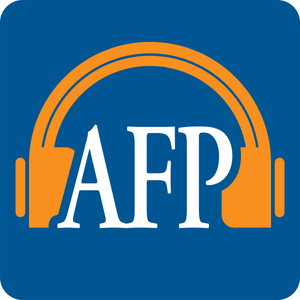 AFP: American Family Physician Podcast
AFP: American Family Physician Podcast
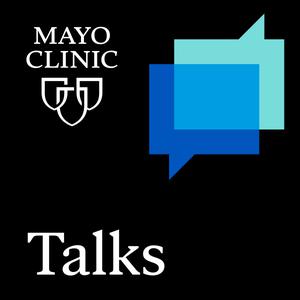 Mayo Clinic Talks
Mayo Clinic Talks
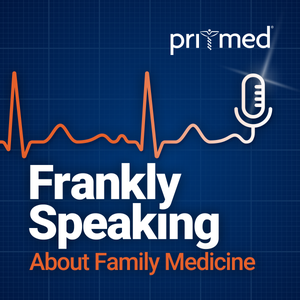 Frankly Speaking About Family Medicine
Frankly Speaking About Family Medicine
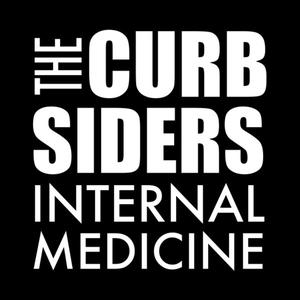 The Curbsiders Internal Medicine Podcast
The Curbsiders Internal Medicine Podcast
 Becoming A Stress-Free Nurse Practitioner
Becoming A Stress-Free Nurse Practitioner
 Medgeeks Clinical Review Podcast
Medgeeks Clinical Review Podcast